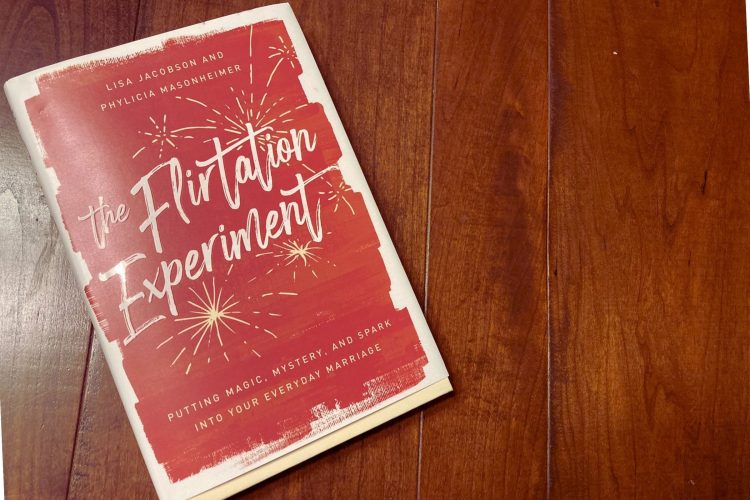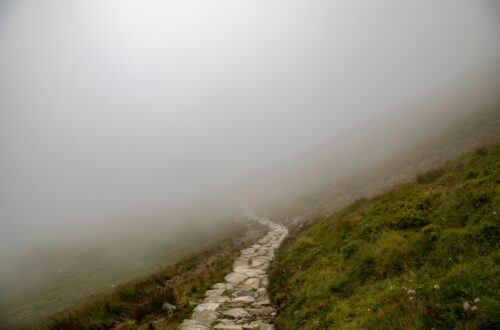When it comes to breaking free from pornography and other sexual sins, I talk a lot about confession.
In fact, if you email me (or have emailed me) asking what you should do to help start your freedom journey, my answer will always be “you need to tell someone.”
There’s a reason for that, but there’s also a lot of fear around “confessing.”
What if I confess and they get mad?
What if I confess and they don’t care?
What if I confess and I am punished?
I think it’s unfortunate that we as Christians so often use confession similar to how it is used in a crime documentary. We picture ourselves as criminals, wanted by the law, and confession is basically “turning ourselves in.” Turning ourselves in to receive our punishment.
But that’s not confession the way the Gospel frames it.
In fact, in God’s system of law and order, confession leads to freedom.
If we confess our sins, he is faithful and just to forgive us our sins and to cleanse us from all unrighteousness. 1 John 1:9 {ESV}
When we share our struggles with other people, we are inviting them into the Gospel narrative in our lives. We are giving them a chance to speak grace into our lives and giving ourselves an opportunity to experience the healing power of Christian community.
There are plenty of people who struggle with this. I’ve written before about what happens when you confess and that confession is met with shame.
But the question posed to me more recently was this:
What if I confess and there are consequences?
Consequences and shame are not the same thing, and I feel like that’s an important distinction. Some reactions can be shame-based but there are also situations where negative reactions are an appropriate reaction. Consequences, like “confession”, has just become an ugly, negative word associated with harsh punishment. If my daughter drops one of our drinking glasses on the floor, the glass will break. That’s the consequence. The glass breaks because she dropped it. We’ve come to associate “consequence” with “punishment” because we operate in a bit of a shame/honor system.
We have to walk away from this false dichotomy that everything that looks hard, sad, and dark is bad and everything that looks happy, easy, and sunshiney is good. Shame can very often disguise itself as the easy way and there are plenty of good things that are hard. Grace doesn’t mean everything is gumdrops and roses.
If you are serious about finding freedom from pornography, you need to understand that: there are plenty of good things that are hard.
All hard things are not shame.
I share this in my book, Beggar’s Daughter. One of the most humbling yet formative experiences for me happened a couple of months after I confessed my struggle. I was supposed to be serving as a counselor for snow camp but I was suffering from some severe emotional dysregulation. When you use pornography as a coping mechanism for so long and then start to take it away, figuring out how to cope with emotions can be a steep learning curve.
I wasn’t even a full day into my first day of counseling before I was deemed, “unfit to serve” and essentially blacklisted from serving as a camp counselor. I wasn’t allowed to see the campers I had worked with or anything.
Is that shame or is that wisdom?
In my case, that was wisdom.
I think we would do well to remember wisdom in our journeys of freedom. Wisdom is a faithful friend in our journeys, actually. It helps us set up boundaries. It helps us recognize unhelpful situations. Wisdom helps us navigate relationships. It helps us know when to share our story and when to withhold some parts. Wisdom will help us reframe experiences and will help us uproot shame.
Shame will try to hijack negative experiences.
Always. It tries to claim them and overshadow those experiences in a way that keeps us from being able to see them through a lens of grace.
For instance, you may share your story with your spouse and there may be a pause as he looks at you in disbelief.
That pause? Totally normal. A totally normal response to any kind of unexpected news. In fact, I would argue that pause is a healthy addition to any response to any news. Pausing before we speak is… wisdom.
BUT shame will come swooping in there in that moment, screaming loud, “See? He hates you! He thinks you’re disgusting.” Shame will put all sorts of words in places where there weren’t any and will transform what should be a very healing experience (sharing with your spouse) into one that is downright devastating.
The same can be true in other contexts.
If someone in a position of ministry shares that they are currently struggling with an out-of-control pornography issue, my response will be to encourage her to step down from her position. Why? Is it because I feel her struggle disqualifies her? Not necessarily. Is it because I believe she needs to be punished for her struggle? Absolutely not.
My advice to step down would come from a place of wisdom.
I know from my own experience that the higher you build your pedestal, the harder it is to come down. The harder it is to be open and honest and to remain teachable. You’ll be tempted to hide behind your platform. You’ll convince yourself things aren’t that bad because you’re so and so. Therefore, the first item of business is to remove that crutch.
I would argue that it is only shame to lose a position if you found your identity in that position.
So what happens when you admit your struggle and suffer some “fall out?”
Remember that it might not be shame. If you are currently struggling, you should expect things to change from what they currently are. That might not be pleasant and it might not be comfortable, but that doesn’t mean it’s shameful. It might just be wisdom.
The Bible has much to say about wisdom. My favorite praise for wisdom is found in Proverbs 3.
Blessed are those who find wisdom, those who gain understanding, for she is more profitable than silver and yields better returns than gold. She is more precious than rubies; nothing you desire can compare with her. Long life is in her right hand; in her left hand are riches and honor. Her ways are pleasant ways, and all her paths are peace. She is a tree of life to those who take hold of her; those who hold her fast will be blessed.
What I love about that passage is that all of the things shame tries to protect are promised here. We are promised understanding (intelligence and insight). We are told that wisdom is more profitable that money. That anything we desire cannot compare to it. Long life. Riches. Honor. Pleasant ways, peace, and life.
Doesn’t that sound great? Doesn’t it sound like everything we hope for and everything shame tries, in vain, to promise us and “protect.” Shame wants to protect our honor, our income, our status. And yet, here is wisdom, promising all of that and more. Wisdom leads to life.
It doesn’t mean that the road is easy. It doesn’t mean there aren’t uncomfortable, even embarrassing, moments along the way. But I promise you that wisdom is a more gracious teacher than shame could ever be.
Before you recoil and respond as if it’s shame, let me challenge you with this, could it be wisdom?
And if it is, don’t fight it. Learn from it.






